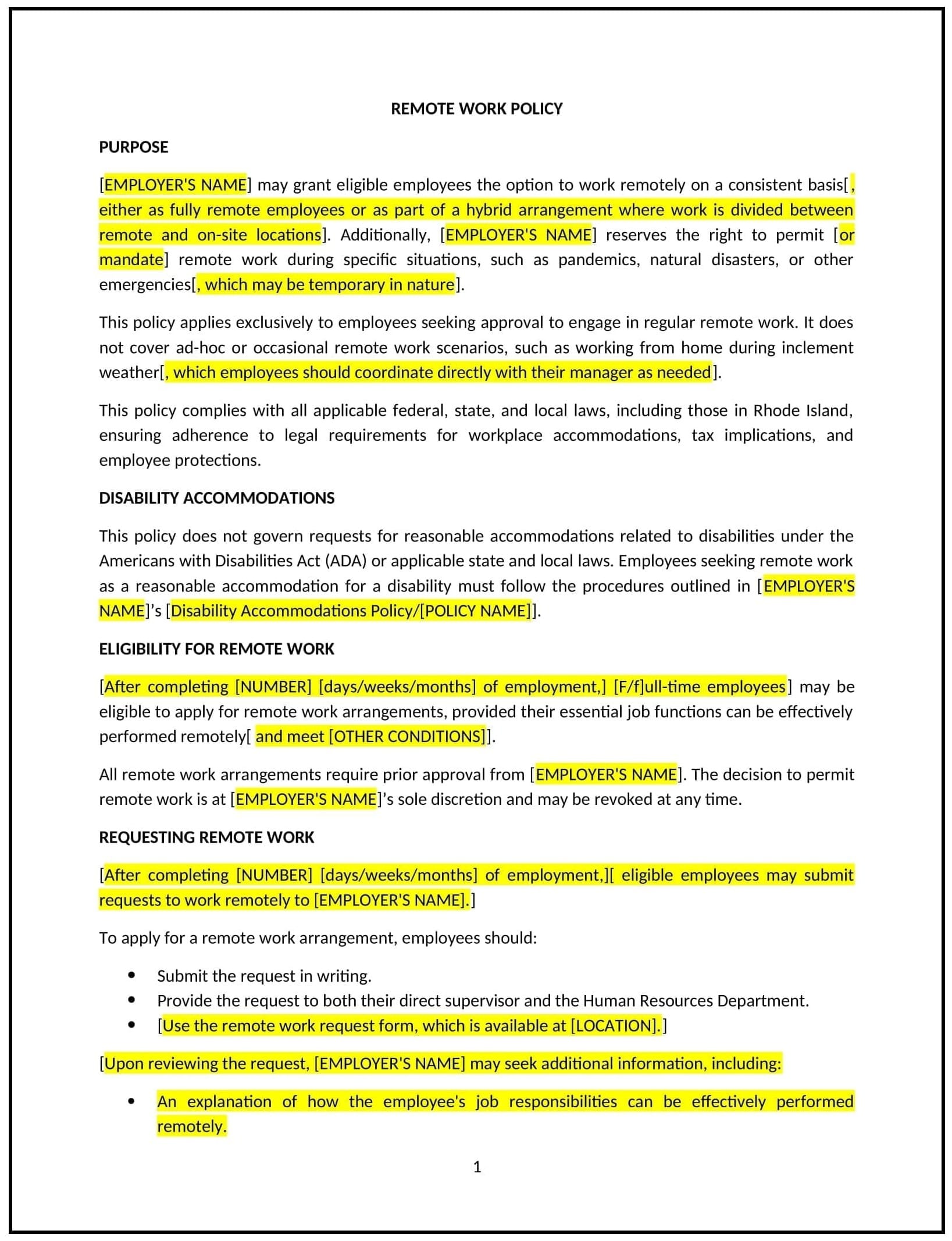Got contracts to review? While you're here for policies, let Cobrief make contract review effortless—start your free review now.

Customize this template for free
Remote work policy (Rhode Island)
This remote work policy is designed to help Rhode Island businesses establish clear guidelines for employees working outside the traditional office environment. It outlines expectations, communication protocols, and equipment requirements for remote work arrangements.
By adopting this policy, businesses can promote flexibility, enhance productivity, and support a modern work environment.
How to use this remote work policy (Rhode Island)
- Define remote work: Clarify what constitutes remote work and the types of roles eligible for this arrangement.
- Set expectations: Outline performance standards, work hours, and availability requirements for remote employees.
- Establish communication protocols: Specify tools and methods for staying connected, such as email, video calls, or project management software.
- Address equipment and expenses: Detail whether the business will provide equipment or reimburse expenses for remote work setups.
- Ensure data security: Provide guidelines for protecting sensitive business information while working remotely.
- Train managers: Educate supervisors on managing remote teams and maintaining productivity.
- Review and update: Assess the policy annually to ensure it aligns with evolving business needs and employee expectations.
Benefits of using this remote work policy (Rhode Island)
This policy offers several advantages for Rhode Island businesses:
- Promotes flexibility: Allows employees to work from locations that suit their needs, improving work-life balance.
- Enhances productivity: Reduces commute times and provides a comfortable work environment, leading to higher efficiency.
- Supports modern work trends: Aligns with the growing demand for flexible work arrangements.
- Reduces overhead costs: Lowers expenses related to office space and utilities.
- Attracts talent: Makes the business more appealing to candidates seeking remote work opportunities.
Tips for using this remote work policy (Rhode Island)
- Communicate the policy: Share the policy with employees and include it in the employee handbook.
- Provide training: Educate managers on managing remote teams and maintaining productivity.
- Monitor performance: Regularly review remote employees’ work to ensure alignment with business goals.
- Address issues promptly: Take corrective action if remote work arrangements are not meeting expectations.
- Update regularly: Assess the policy annually to ensure it aligns with evolving business needs and employee expectations.